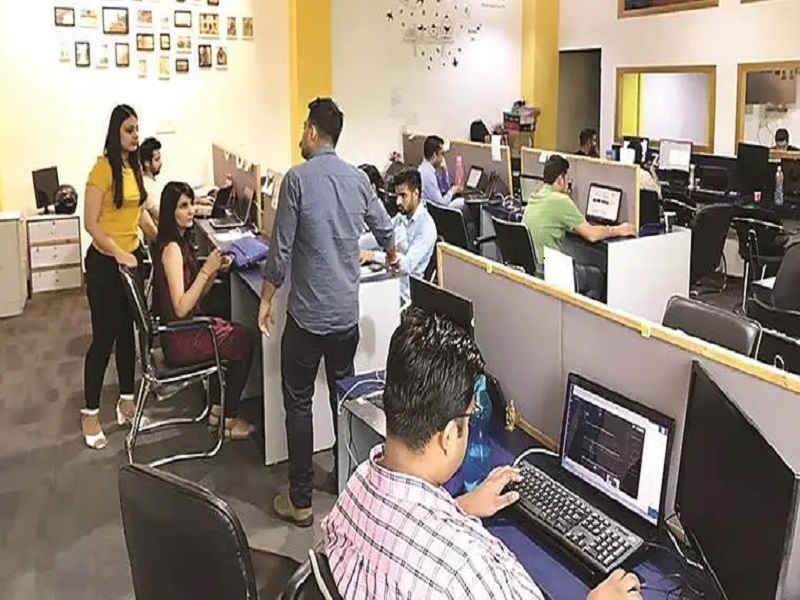As Hyderabad thrives as a major IT hub, debates arise about the sustainability and impact of its work culture. Critics argue that the relentless pace and high expectations may overshadow local traditions and work-life balance. Is the city’s rapid growth fostering innovation, or are we losing sight of what truly matters?
The Debate on Longer Working Hours: A Look at Hyderabad’s Work Culture
Longer working hours are often seen as a necessary evil in certain professions, used only when all other options have been exhausted. But have we considered the reality of those who work long hours daily, like lorry drivers, shopkeepers, and farmers? It’s clear that Hyderabad, like many cities, has become increasingly resistant to change, often rejecting new ideas or proposals that aim to improve the work environment.
In the pursuit of “rights” and freedoms, we tend to overlook the real consequences of this mindset. While reasonable and responsible criticism is essential for democracy, it is critical not to overextend these freedoms to the point of undermining progress. Unfortunately, this is often the case when new ideas or initiatives face unwarranted backlash.
The Tragic Loss of a Young Life: An Opportunity for Reflection
The recent tragic death of a young chartered accountant has sparked widespread anger and grief. The loss of such a promising career is heartbreaking. However, the key question remains: who or what contributed to this devastating event? Suicide, in any form, should never be glorified. It’s crucial that we address the systemic issues, including extreme working conditions, that lead to such tragic outcomes.
Extended Working Hours: The Pressing Issue
There are those in positions of authority who believe that longer working hours lead to greater productivity. However, studies have shown no direct correlation between longer work hours and improved results. This is especially true in industries that require more intellectual effort than physical labor. Physical labor is equally valuable and deserves respect. Any discrimination between mental and physical work is unjustifiable.
Rethinking Productivity: Legal and Acceptable Solutions
Increasing productivity through legal and acceptable means should be the goal. Innovations in technology, better training, and adapting to changing needs can help boost efficiency. Some argue that the “more pay for more work” principle is fair when optional and not mandatory. Many young professionals prefer the opportunity to work extra hours for additional income, especially in urgent situations.
Working 12-14 hours a day, if chosen freely, does not necessarily mean exploitation. For some, this arrangement allows for longer weekends or extra time off. As long as the choice remains voluntary and within legal limits, it should not be opposed.
The Risks of Normalizing Excessive Hours
However, the issue arises when the voluntary extension of working hours becomes normalized over time. If working 70 hours a week becomes commonplace, the initial “choice” could evolve into an expectation, undermining the very idea of personal choice. While some may oppose this idea because of its origin, it’s important to remember that its intention was never to exploit workers.
The proposal might have flaws, but it should be discussed rather than dismissed outright. Criticism should be constructive, not simply reactionary.
Understanding the Struggles of Other Workers
Have we ever considered the plight of workers who don’t have the luxury of choosing their hours? Lorry drivers spend days on the road, shopkeepers work long hours to earn a meager living, and street vendors endure harsh conditions for survival. Farm laborers, cart-pullers, and daily wagers are not concerned with “work-life balance” because their survival depends on relentless work, regardless of conditions.
The so-called “leaders” fighting for workers’ rights rarely address these issues in the informal sector, where there is little to “harvest” for them. These workers remain overlooked, but their struggles deserve our attention and support.
Regulating Work Culture in the IT Sector
In sectors like IT, there is a genuine need for regulating working hours and creating a work environment that offers both security and happiness. It is crucial to foster a healthy work-life balance, ensuring that employees feel valued and supported. Both employers and employees must work together to build a culture that promotes a strong, thriving economy while respecting individual well-being.
Social media postings – the outpourings of many young aspirants and employees – would not serve any purpose unless it all leads to a possible ‘re-look’ by the authorities concerned. When it so happens, we could say, we have a voice too! #hydkhabar


We are safe! No shift extensions and no work from home too.